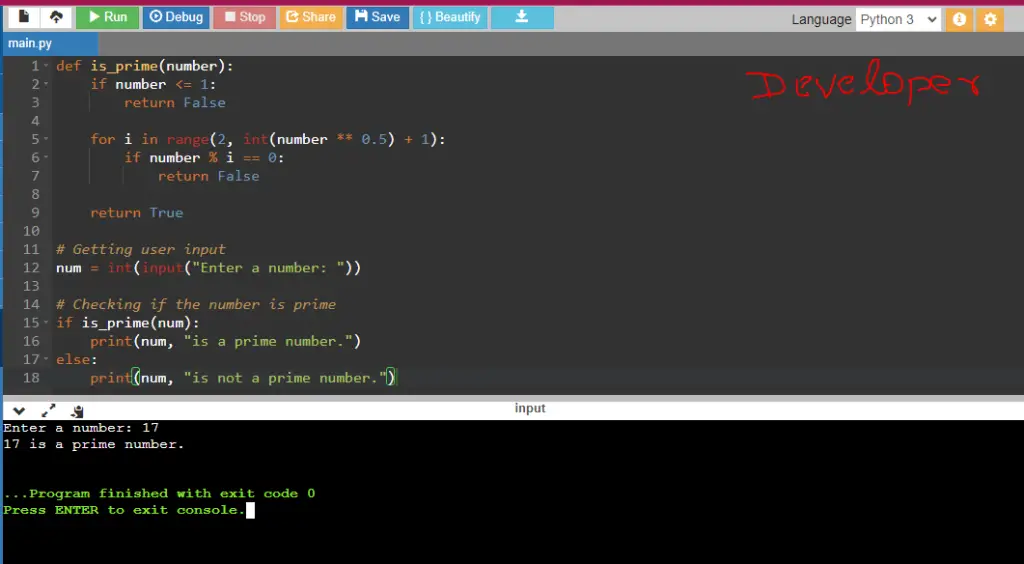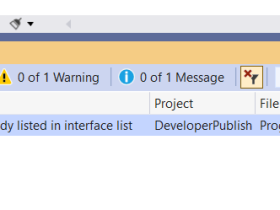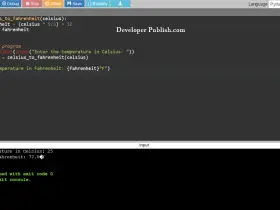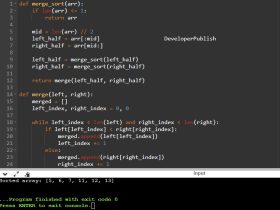Python Program to Check Prime Number
In this Python program, we will check whether a given number is prime or not. A prime number is a natural number greater than 1 that has no positive divisors other than 1 and itself.
Problem statement
Given a number, we need to determine whether it is a prime number or not.
Python Program to Check Prime Number
def is_prime(number):
if number <= 1:
return False
for i in range(2, int(number ** 0.5) + 1):
if number % i == 0:
return False
return True
# Getting user input
num = int(input("Enter a number: "))
# Checking if the number is prime
if is_prime(num):
print(num, "is a prime number.")
else:
print(num, "is not a prime number.")How it works
- We define a function
is_prime(number)to check whether the given number is prime or not. - If the number is less than or equal to 1, it is not prime, so we return
False. - We iterate from 2 to the square root of the given number (using
int(number ** 0.5) + 1) and check if the number is divisible by any of the values in this range. - If the number is divisible by any value, it is not prime, so we return
False. - If the number is not divisible by any value, it is prime, so we return
True. - In the main program, we get user input for the number to be checked.
- We call the
is_prime()function with the user-provided number and check the returned value. - Finally, we print whether the number is prime or not based on the returned value.
Input / Output





Leave a Review